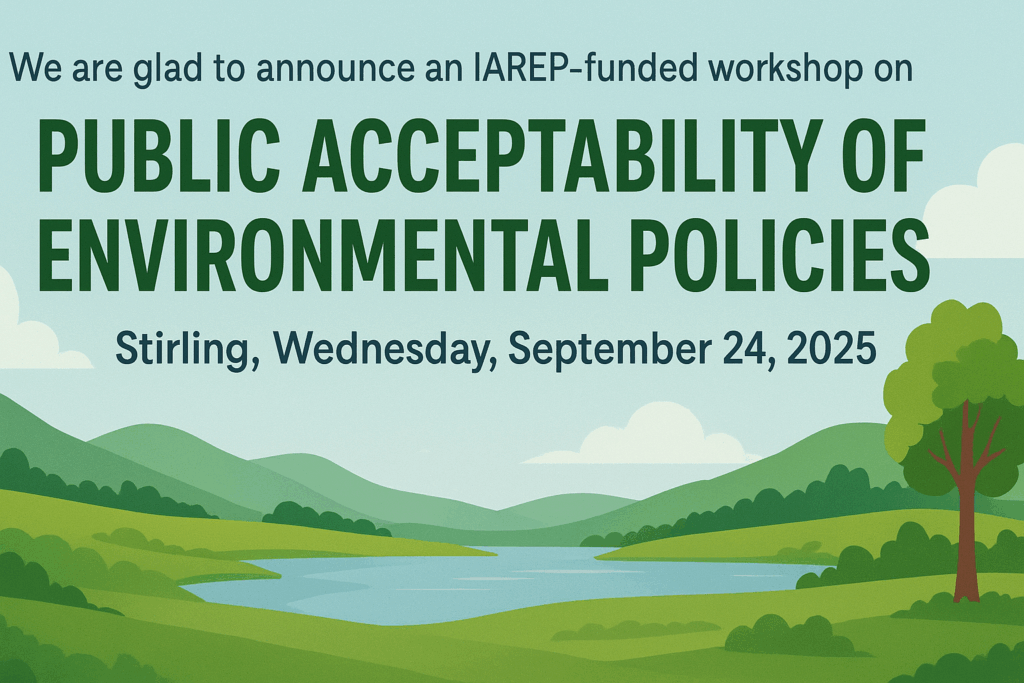
Thank you to all presenters and participants of the IAREP-funded workshop on Public Acceptability of Environmental Policies, which we hosted at the University of Stirling on Wednesday, September 24, 2025!
It was a fantastic event, full of stimulating insights, lively discussions during presentations and coffee breaks, and many new connections that we hope will spark future collaborations and projects.
Here are some insights from the presentations.
Chad Baum from Aarhus University shared new data from a large survey of nearly 4,000 participants across the USA, Germany, China, Brazil, and Kenya. He demonstrated how support for environmental policies and carbon dioxide removal technologies is lined with economic risk preferences, time preferences, and social preferences.
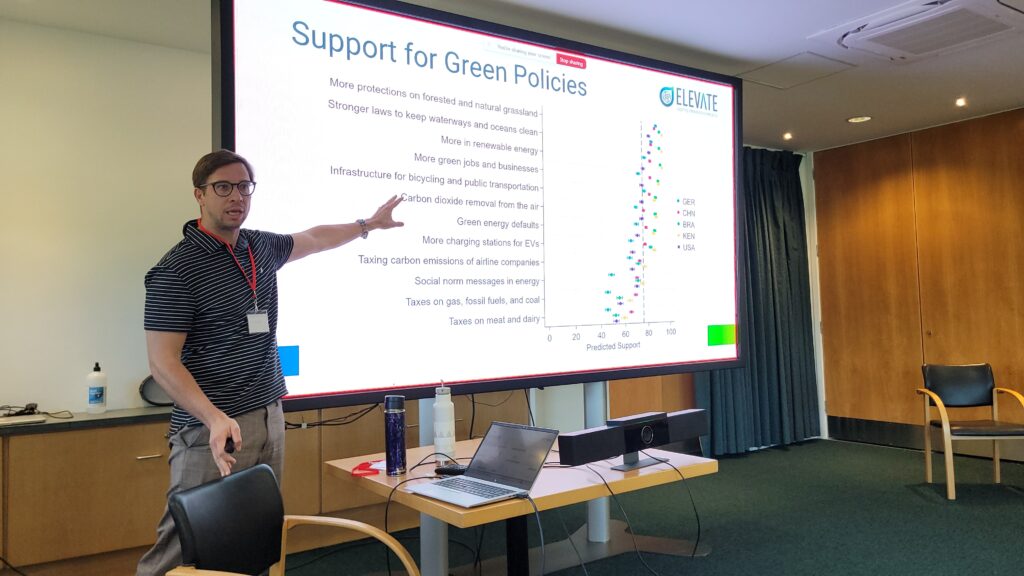
Till Stowasser from Stirling presented research on transport policies framed in terms of environmental benefits, health benefits, or both. He showed that combining health and environmental framing appears most effective.
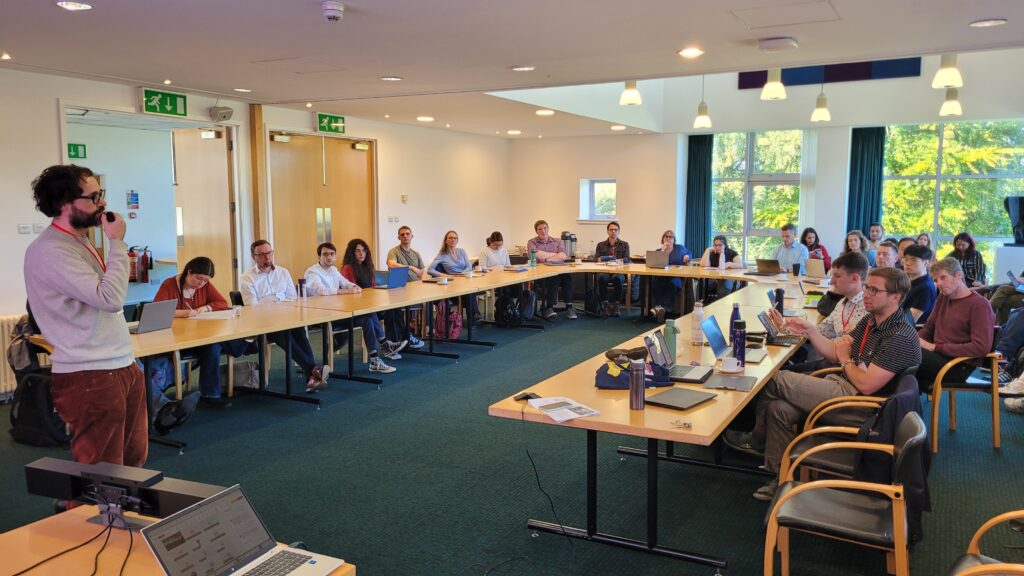
Manu Savani from Brunel University discussed qualitative findings on why people accept stringent measures such as bans and taxes, linking policy support to demand for commitment and the planner-doer framework.
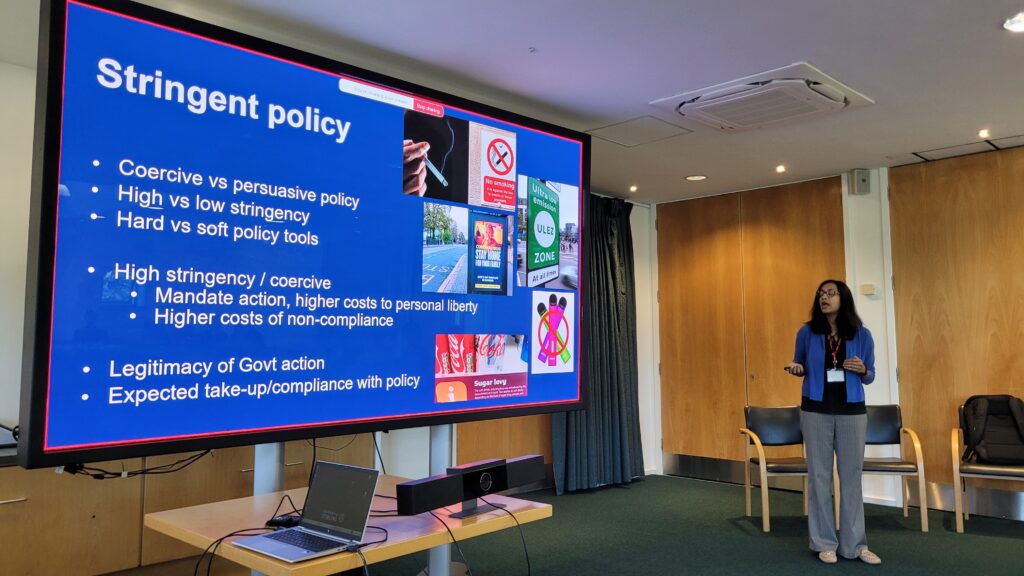
Amy Rodger from the University of Edinburgh and BR-UK showed that policy support remains relatively stable across different information treatments. Interestingly, while statistics do not shift support, anecdotes highlighting negative personal experiences reduce it.
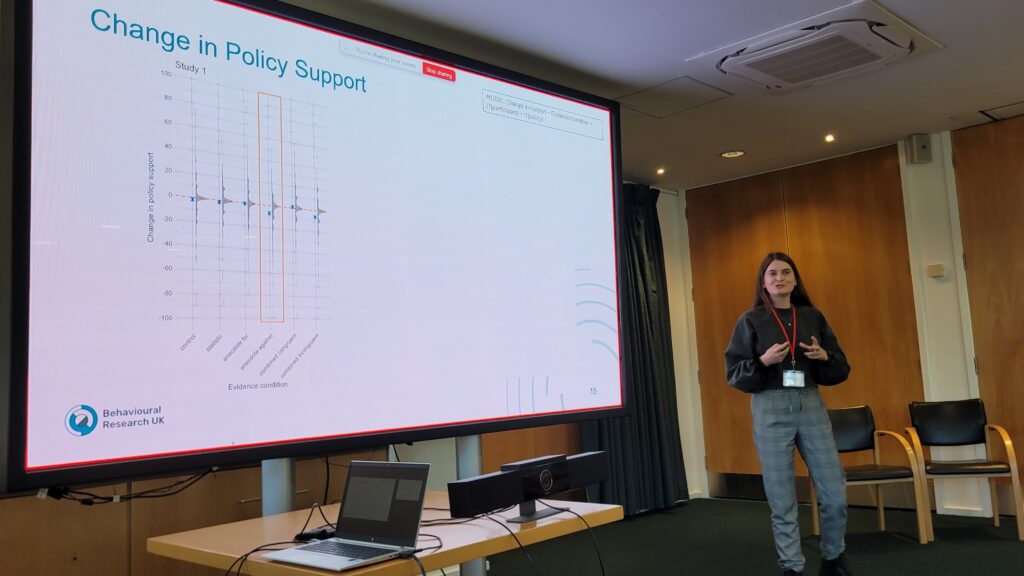
Carlos A. Silva-Zambrano from Heriot-Watt University examined support for higher conservation entry fees in the Galapagos Islands, showing that attitudes change significantly before versus after the fee increase. Public support also rises when revenues are allocated in line with public preferences.
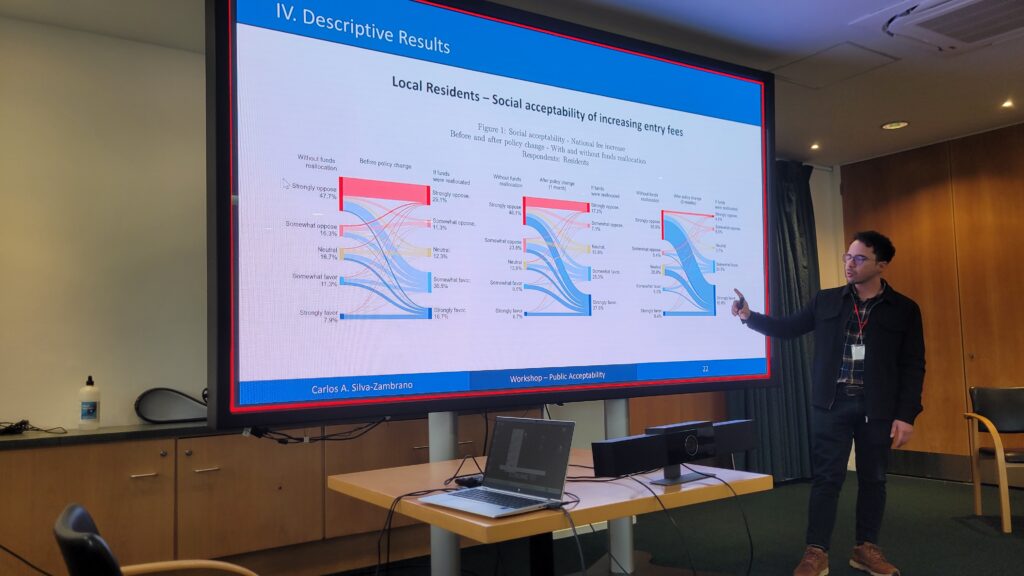
In his Keynote Address, Mark Andor (Ruhr University Bochum & RWI – Leibniz Institute for Economic Research) gave an excellent overview of approaches to studying policy acceptability across sectors. He highlighted the consistent finding that “pull” measures enjoy greater support than “push” measures, and presented longitudinal evidence from the RWI Climate-Mobility Panel on how support evolves over time.
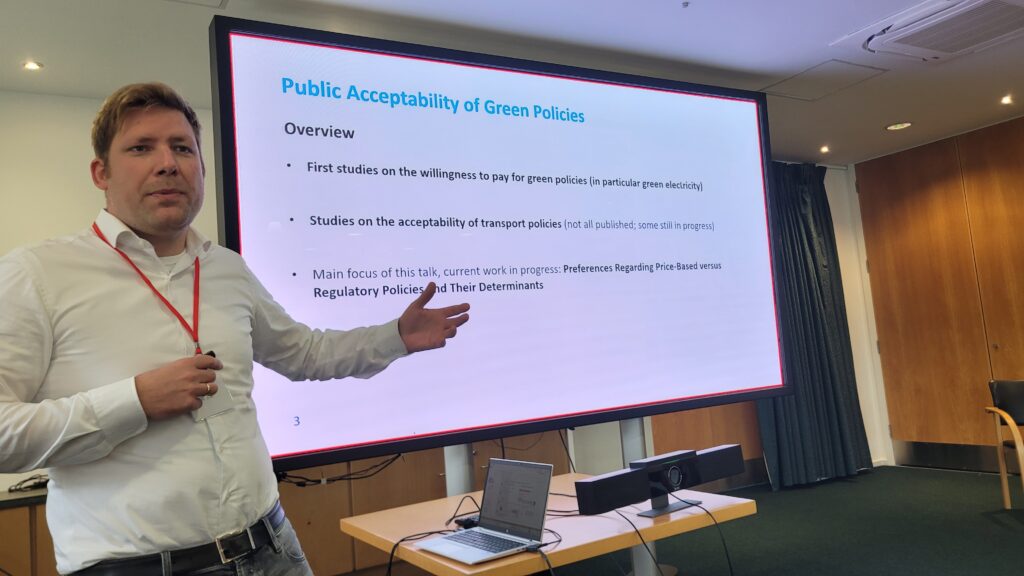
Cameron Reid from Crown Estate Scotland contributed a practitioner’s perspective, emphasizing how behavioural science insights can inform stakeholders and shape better climate policy. He introduced the SOCIBE framework (Salient Opportunity Cost of Inaction through Behavioural Engagement) as a tool to foster public acceptability.
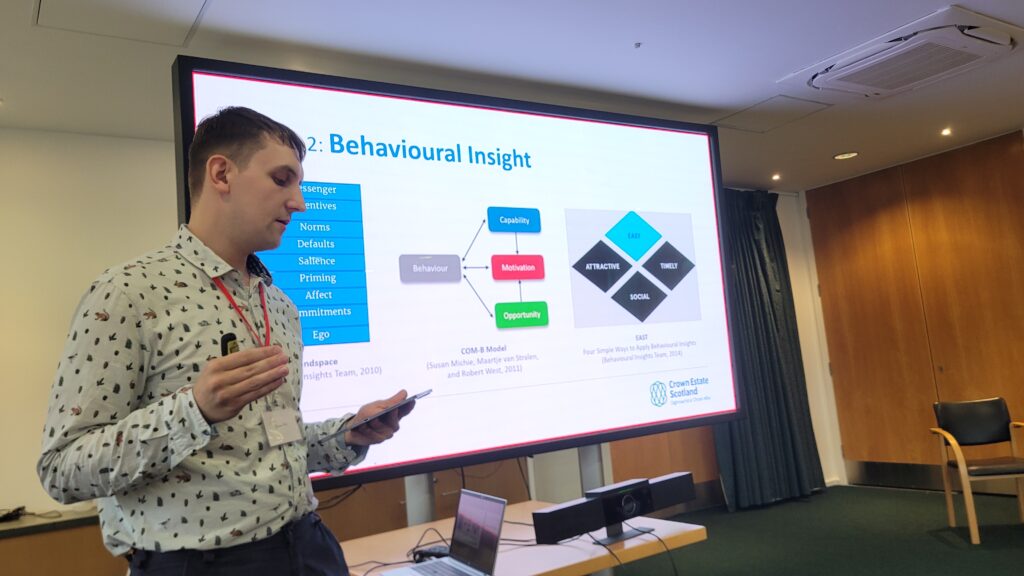
Leonhard Lades (University of Stirling) presented analyses from the Climate Change in the Irish Mind dataset, showing how support for eight environmental policies correlates with climate change worry and other psychological predictors.
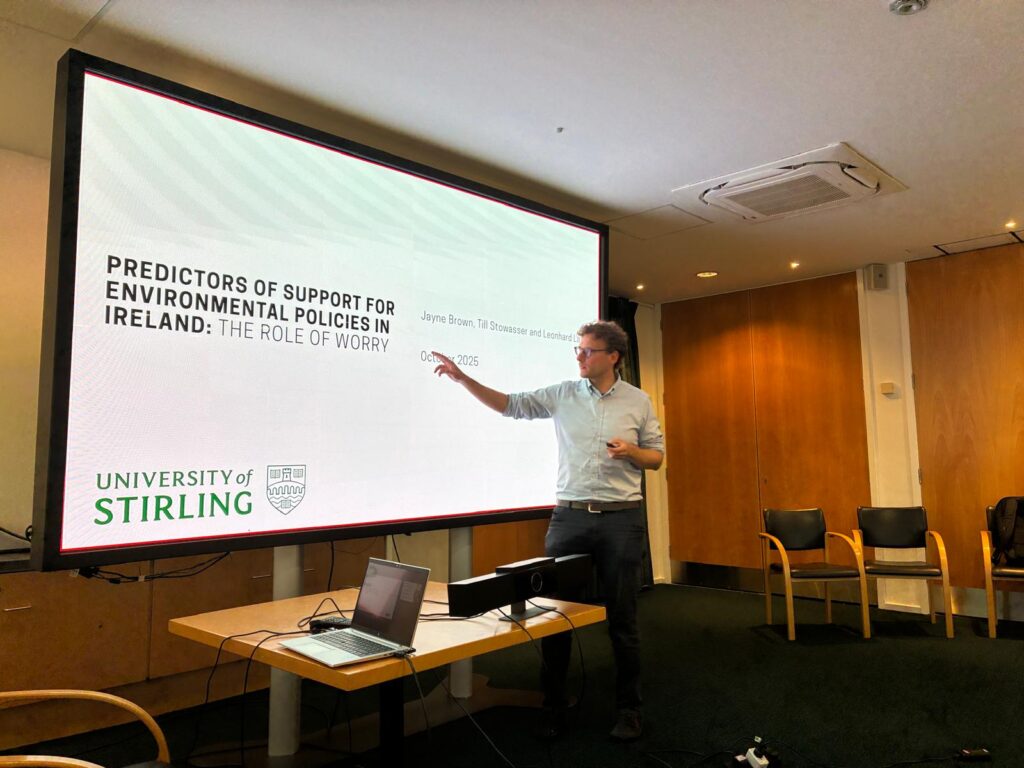
Thanks also to John Stephen from the Scottish Government Climate Behaviours Team for his semi-spontaneous reflections on what he and others in governments can learn from the insights from the workshop!
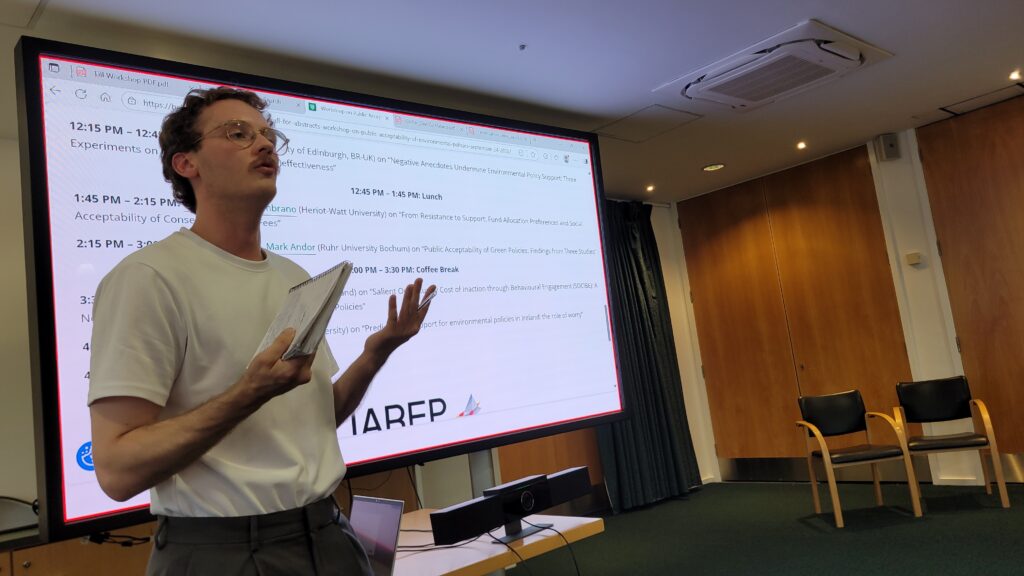
Overall, the workshop highlighted the richness of research on the psychological and behavioural determinants of public acceptability for environmental policies. Despite diverse methods and perspectives, the discussions underscored how much we can learn from one another.
We extend our gratitude once again to IAREP for making this workshop possible. See below for the schedule of the day and links to the presenters’ websites.
Schedule
09:30 AM – 09:45 AM: Welcome and Introductions
09:45 AM – 10:15 AM: Chad Baum (Aarhus University) on “Economic Preferences and Support for Environmental Policies Across 5 Countries”
10:15 AM – 10:45 AM: Till Stowasser (Stirling University) on “Framing Emissions: Public Health and Environmental Narratives. A Study on Public Acceptability of a Driving Charge”
10:45 AM – 11:45 AM: Networking Coffee Break
11:45 AM – 12:15 PM: Manu Savani (Brunel University) on “Public acceptance of coercive policies: a behavioural public policy approach”
12:15 PM – 12:45 PM: Amy Rodger (University of Edinburgh, BR-UK) on “Negative Anecdotes Undermine Environmental Policy Support: Three Experiments on Communicating Policy (In)effectiveness”
12:45 PM – 1:45 PM: Lunch
1:45 PM – 2:15 PM: Carlos A. Silva-Zambrano (Heriot-Watt University) on “From Resistance to Support: Fund Allocation Preferences and Social Acceptability of Conservation Entry Fees”
2:15 PM – 3:00 PM: Keynote by Prof. Mark Andor (Ruhr University Bochum) on “Public Acceptability of Green Policies: Findings from Three Studies”
3:00 PM – 3:30 PM: Coffee Break
3:30 PM – 4:00 PM: Cameron Reid (Crown Estate Scotland) on “Salient Opportunity Cost of Inaction through Behavioural Engagement (SOCIBE): A Novel Framework for Public Acceptability of Climate Policies”
4:00 PM – 4:30 PM: Leonhard Lades (Stirling University) on “Predictors of support for environmental policies in Ireland: the role of worry”
4:30 PM – 5:00 PM: Reflections
